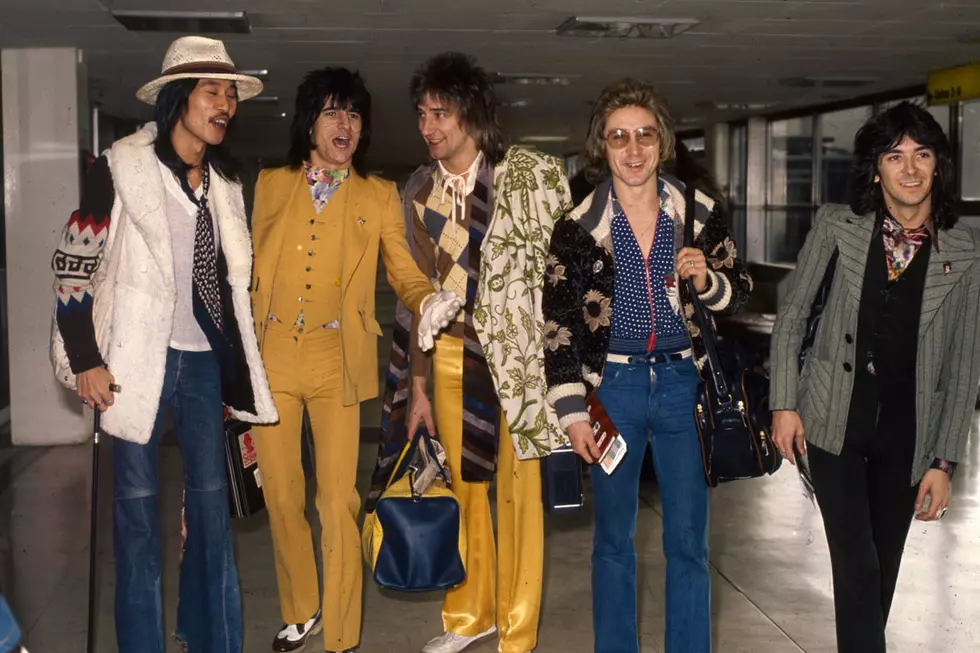
50 Years Ago: The Faces Play Their Final Concert
At one point, you'd have been hard pressed to find a better rock and roll band than the Faces. Unfortunately, Rod Stewart and company came apart after one final early-'70s member defection. Their final concert was on Nov. 1, 1975 at the Labor Temple in Minneapolis.
In truth, even when the Faces' 1975 tour began in August, all parties must have had a sense that the end was near. After all, Stewart's tandem solo career had taken off, and Ron Wood had already taken a second gig with Rolling Stones.
They hadn't recorded an album since 1973's ragged-but-right Ooh La La, which Stewart described as "a bloody mess." Founding bassist Ronnie Lane had been gone since the summer of 1973, too. Then came a stop in Minnesota, and the official end of a group whose records were as pure and genuine as could be – and whose live shows were a joyous, often-inebriated celebration.
The Faces had grown out of the dissolution of the Small Faces in 1969, when singer/guitarist Steve Marriott's left for Humble Pie. Lane, drummer Kenney Jones and the late keyboardist Ian McLagan then joined with frontman Stewart and guitarist Wood to begin anew. But the newly rechristened Faces' ragged, raunchy rock and roll ride was immediately beset with trouble.
Stewart had started solo work before joining the Faces. By 1971, he was selling millions of records thanks to the hit single "Maggie May," and the album Every Picture Tells A Story. "Before long, I was accused of keeping the best songs for myself," Stewart said in his autobiography Rod. "That was never the case and, logically, it couldn't have been because I didn't write songs all the time, like a proper songwriter."
The late Lane was replaced by Tetsu Yamauchi, but the Faces never caught fire the way Stewart did as a solo act. Their 1974 single "You Can Make Me Dance, Sing or Anything," the sole studio output from this lineup, reached No. 12 in the U.K. but failed to chart at all in the U.S.
Then the Rolling Stones came calling, after splitting with Mick Taylor. "The Stones had courted Woody for ages, and their interest in him was no secret," Stewart remembered in Rod. "I don't think anyone was surprised that eventually he couldn't resist, or blamed him for succumbing. How many guitarists wouldn't have wanted to join the Rolling Stones?"
Wood at first played in both bands, touring across America twice in the summer of '75. When the guitarist finally settled on his new gig, the Faces were no more.
See Where Rod Stewart Ranks Among Classic Rock’s Top Acts
More From Ultimate Classic Rock









